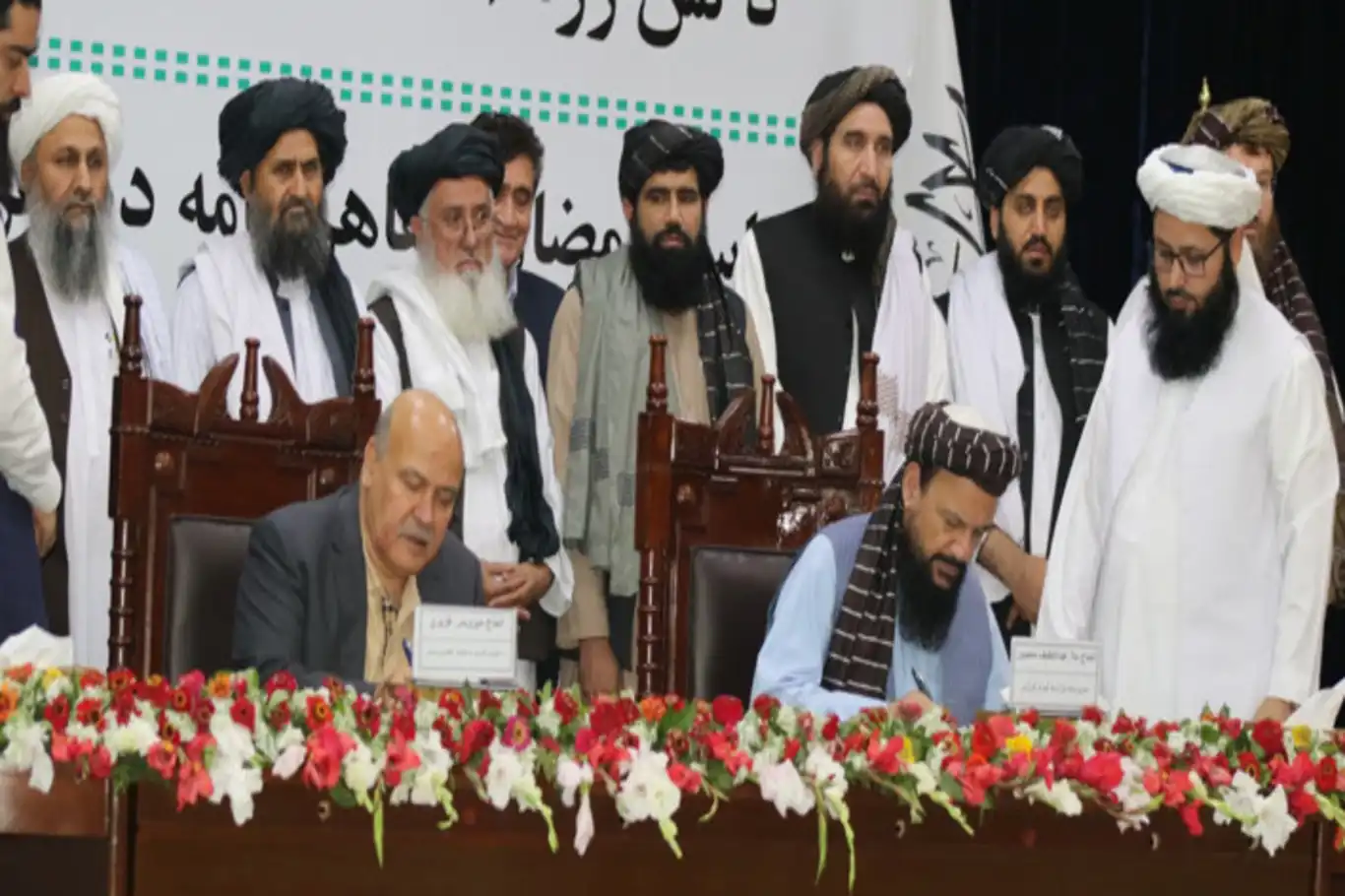Afghanistan signs $10 billion deal with Azizi Group to generate 10,000 MW of power


Afghanistan’s Ministry of Energy and Water has signed a landmark agreement with Azizi Group to generate, transmit, and distribute 10,000 megawatts of electricity in a project valued at $10 billion.
The agreement was signed Saturday in Kabul in the presence of Deputy Prime Minister for Economic Affairs, Mullah Abdul Ghani Baradar. Energy Minister Mullah Abdul Latif Mansoor and Azizi Group CEO Mirwais Azizi formalized the deal, which officials described as a historic breakthrough for Afghanistan’s energy sector.
Speaking at the signing ceremony, Minister Mansoor hailed the agreement as a “significant achievement” for the Islamic Emirate, noting that the government has been working to attract investment since its return to power. He said the administration is committed to creating opportunities for both investors and citizens, particularly in infrastructure and energy development.
“Today is a historic day for Afghanistan,” Mansoor said. “The Islamic Emirate will provide all necessary facilities for investors to ensure progress, jobs, and prosperity.”
Azizi Group Chairman Mirwais Azizi highlighted Afghanistan’s vast energy potential, pointing to abundant natural resources. “With nationwide security now in place after decades of conflict, the time has come to join hands and make Afghanistan self-reliant and competitive,” he said.
Under the agreement, the company plans to produce electricity from a mix of gas, coal, water, wind, and solar sources across multiple provinces. The project aims to make Afghanistan fully energy self-sufficient within 7 to 10 years, with the possibility of exporting power to neighboring countries.
Of the total planned capacity, 4,000 megawatts will be allocated for public consumption, while 6,000 megawatts will be directed to industrial use — paving the way for new factories, job creation, and increased national revenue.
Technical teams from the Ministry of Energy and Azizi Energy will begin site surveys on August 1, with surveys expected to be completed within ten days. The project design will be finalized over the next six months, after which construction on the first 2,000–3,000 megawatts will commence.
Officials expressed optimism that the agreement marks a transformative step in Afghanistan’s path toward energy independence and economic growth. (ILKHA)
LEGAL WARNING: All rights of the published news, photos and videos are reserved by İlke Haber Ajansı Basın Yayın San. Trade A.Ş. Under no circumstances can all or part of the news, photos and videos be used without a written contract or subscription.
Türkiye’s short-term external debt stock edged down in October, declining by $21 million from the previous month to $165.7 billion, according to data released by the Central Bank of the Republic of Türkiye (CBRT).
Türkiye’s gross domestic product (GDP) per capita index based on purchasing power parity (PPP) stood at 72 in 2024, according to figures released by the Turkish Statistical Institute (TurkStat) on Wednesday.
A total of 183,172 road motor vehicles were registered in Türkiye in November, according to data released by the Turkish Statistical Institute (TurkStat) on Wednesday.
Housing sales in Türkiye declined in November, even as the overall market maintained solid growth over the first eleven months of the year, according to data released on Tuesday by the Turkish Statistical Institute (TurkStat).